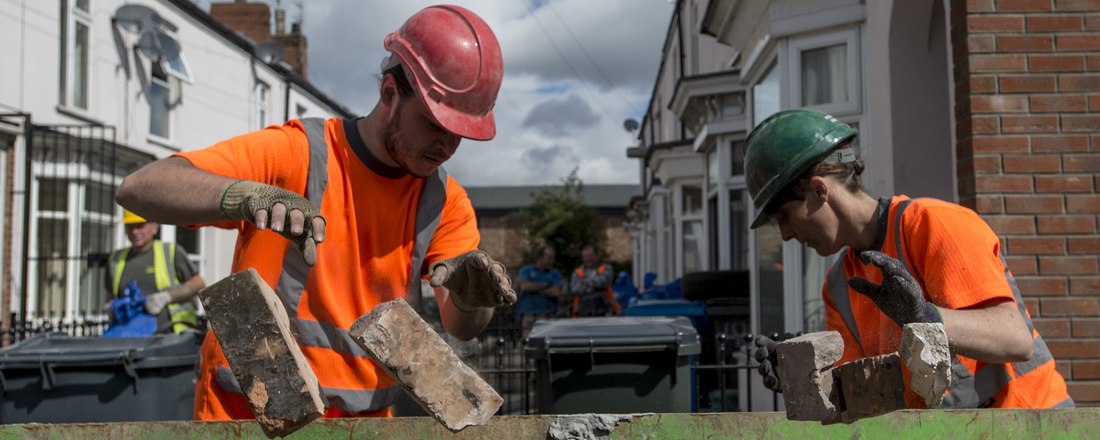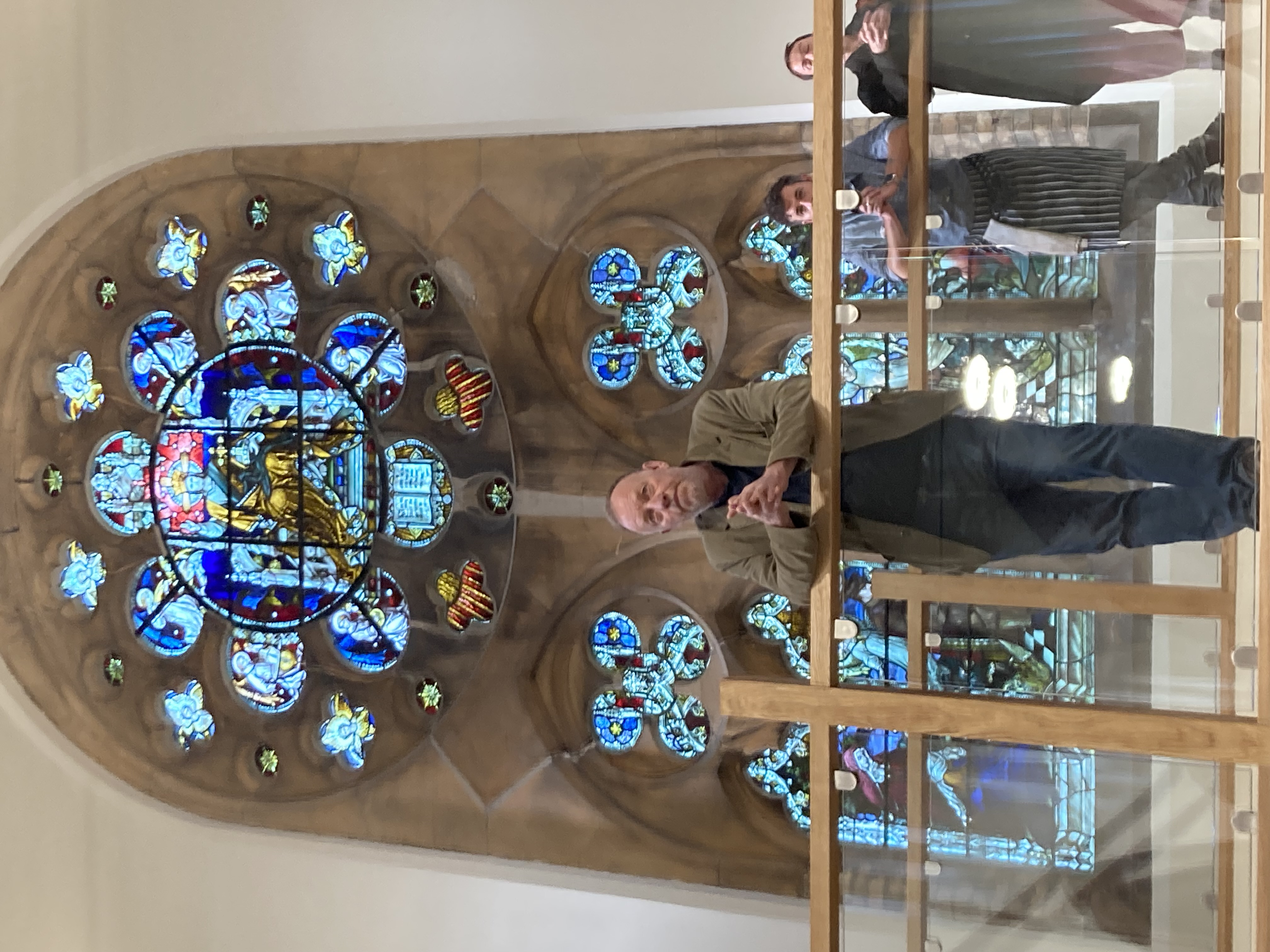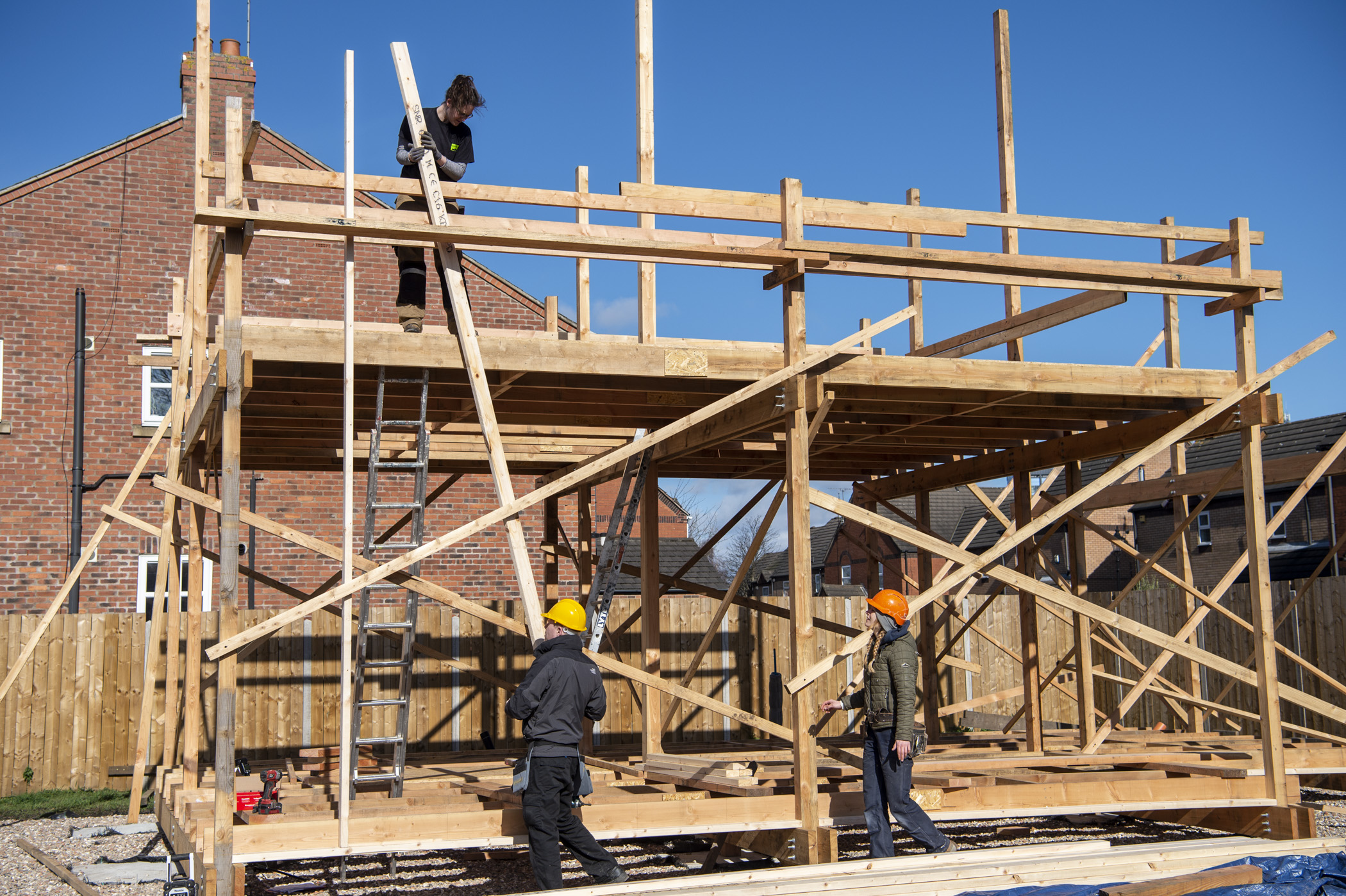Get updates from The Developer straight to your inbox Yes, please!
Giroscope has spent 40 years turning empty properties into affordable homes
“With the right policies, funding and support, it can be done,” says co-founder Martin Newman. Angus Young reports

Martin Newman sits in his office and contemplates the Labour government’s flagship policy to build 1.5 million new homes in England over the next five years. “Apparently they’re including empty homes. We would definitely be up for some of that.”
Giroscope, the Hull-based social housing charity he co-founded 40 years ago, knows a thing or two about buying and renovating empty properties to provide affordable accommodation to those in housing need.
Originally formed as a co-operative by a small like-minded group of young self-styled “green practical anarchists” armed with a punk attitude and sporting dreadlocks, instead of waging war on society they took on the challenge of arresting the decline of a once-thriving inner-city neighbourhood largely made up of crumbling privately-owned late Victorian terraced houses.
Before urban regeneration became a buzzword, Giroscope was pioneering a new way of thinking in terms of community-based development.
Initially viewed with suspicion by some politicians at Hull City Council, Giroscope has become a respected partner and key player in the city’s social housing sector
“When we started it was very much us against the world,” reflects Newman. “All the council seemed to be interested in was demolition, but we took a different view. A lot of the houses had just been neglected by private landlords and because of that, it was having a knock-on negative effect across the wider area.”
The idea was simple - to redevelop run-down properties to provide accommodation for the unemployed.
Previously jobless, the group adopted what was then the name for unemployment benefit payments as the co-op’s title and carried out the necessary renovation work themselves, learning new building skills along the way. “We were able to buy our first property using our Giro cheques to pay for the deposit. It just really went from there.”
“We persuaded friends with jobs to take out mortgages and bank loans and purchased four houses over the period of about a year.”
“We had no skills and no idea about letting. When we advertised our first property we were inundated with prospective tenants because we charged no deposit and welcomed people on benefits.”
The charity now owns a portfolio of over 120 affordable homes rented out to a wide range of people, from those who have moved out of overcrowded or poorly maintained properties to ex-hostel residents, single parents and those on low incomes.
Prospective tenants are encouraged to get involved with renovation work while many volunteers at the charity are also tenants fostering a sense of ownership and kinship.
The properties themselves are finished to a high standard and are energy efficient, let at affordable rents and supported by an in-house maintenance service. There are no deposits, no requirement for rent to be paid in advance and no non-returnable fees.
Instead, emphasis is placed on providing security of tenure with the aim of helping bring stability to a community still blighted by a high turnover of people moving in and out of poor quality private rented accommodation.
In 2019, the charity broke new ground on its first self-build housing project in a pilot intended to demonstrate how affordable rented homes could be constructed on vacant pockets of land
Initially viewed with suspicion by some politicians at Hull City Council, trust between the two organisations has slowly developed over time. Now, having been at the heart of the close-knit community in Newington for four decades, Giroscope has become a respected partner and key player in the city’s social housing sector.
In 2019, the charity broke new ground by starting its first self-build housing project in a pilot intended to demonstrate how sustainable, replicable and affordable rented homes could be constructed on other vacant pockets of land in the neighbourhood. The resulting three properties now sit directly behind its main office.
Giroscope’s social enterprise model is in stark contrast to the worst exploitative elements of the private rented sector and extends beyond housing.
As well as volunteering, current projects also include garden maintenance and landscaping, refurbishing old IT equipment such as laptops for re-use within the community, bicycle repairs and a training scheme specifically designed for 18 to 25 years old to find jobs in the catering and hospitality sector.
Carrying out facelifts on non-residential properties is another element of the charity’s work, helped by a good track record in successfully applying for grant funding from a wide variety of sources over the years.
Giroscope bought the derelict church in 2017 three years after it closed with the help of a European Regional Development Fund grant.
In 1995, it bought a dilapidated former backstreet stables and yard and created a social enterprise park by renting out refurbished units to small start-up businesses while using first-floor space as its first proper headquarters and office. Ahead of its time, the new-look building was also fitted with solar thermal and photovoltaic panel technologies to provide hot water and electricity.
A nearby disused workshop was subsequently acquired and converted into a second social enterprise park while the finishing touches have recently been completed on the hugely ambitious and sensitive £1m renovation of St Matthew’s, a former Grade II listed church, which is being operated as a community hub with dedicated offices for small businesses and plenty of space for live events and entertainment.
Giroscope bought the derelict church in 2017 three years after it closed with the help of a European Regional Development Fund grant. It now features six small offices and a large meeting room on a new mezzanine floor and a new kitchen. The facelift has also included the installation of a new floor complete with an underfloor heating system, rooftop solar panels and the restoration of the church’s distinctive First World War Memorial stained glass window.
Originally installed in 1922 to commemorate men from the local community who fought and died in the war, it’s flanked by two memorial stones listing their names. Newman said: “There are 138 names on the memorials, many of whom were lost at sea. “During the build we had lots of people coming in and telling us they got married here, attended funerals here or sang in the choir here.
“I’m told it’s called ‘Ruined Architecture’ and it’s becoming quite trendy so why shouldn’t Hull have a bit of that?”
“We want to make sure the community continues using the building, whether it’s to work or to just enjoy themselves.”
On a much smaller scale, a former corner shop previously converted into accommodation during Giroscope’s early days has recently been turned into a tiny community hub hosting various health and well-being classes.
With such an active local profile, it’s no surprise to learn the charity also played a leading role in the partnership behind the Newington Neighbourhood Plan, currently the only NNP with statutory planning powers in the whole of Hull after being formally adopted by the city council following a 93.6 per cent referendum vote by local residents in favour of it.
One spin-off from the NNP is the charity’s next big project - converting a derelict former cinema and bingo hall into another community hub complete with an indoor wintergarden. A masterplan design for the latter was the subject of a collaboration with students from Sheffield University’s School of Architecture and Landscape.
“Rishi Sunak came along, called the election and put a spanner in the works. Now we’re just hoping Labour keeps the [Town Centre] fund going”
The empty building is currently leased from the council and was used by the charity to store furniture until a fire destroyed most of the roof.
Newman says: “The fire was one of the worst days of my life but apart from taking out the roof there wasn’t that much internal damage in the end. What it left us with was a big hole looking up at the sky and, in a strange way, quite an interesting building framing that view.
“It got us thinking; ‘Does it really need a new traditional roof or would a glazed one be better?’ It brought so much light into what had previously been a very dark space that the next logical thing to think about was adding some foliage and creating a wintergarden.
”The idea is to put in a few trees and really open up the views by installing glazed panels in the side of the building facing the street.
“We want to leave the main walls of the auditorium as they are, including some of the smoke damage from the fire. We won’t be plastering them, just keeping it as basic brick. “I’m told it’s called ‘Ruined Architecture’ and it’s becoming quite trendy so why shouldn’t Hull have a bit of that?”
The project aims to take its cue from a similar open-air community garden created in the shell of a semi-demolished terraced house in Toxteth in Liverpool which was recently featured on BBC2’s Gardeners World.
Subject to securing funding and a new long-term lease, approval of a recently-submitted planning application will see the building become the base for the charity’s regular healthy eating cookery classes as well as providing space for meetings, training, events, live performance and exhibitions.
The link-up with Sheffield University was so successful that a group of students were invited back to masterplan more design concepts for West Park, a large municipal park in Newington which lies next to a vacant plot of land used to host Europe’s largest travelling fairground every October. The park also lies on the opposite side of a busy dual carriageway from St. Matthew’s.
“It’s a really good collaboration,” said Martin. “The students get hands-on experience while we get the benefit of their talents and enthusiasm.”
The final go-ahead depends on the success of a £1.5 grant application to the Community Ownership Fund, which had been part of the previous government’s Levelling Up programme. The snap General Election and Labour’s victory has left Martin and Giroscope waiting to hear what happens next.
“We put a bid into the first round but got rejected. Then the Levelling Up department got in touch and allocated us someone to work on re-submitting the bid for the next round.
“That is usually a positive sign and gave us a lot of confidence we were on the right track. Then Rishi Sunak came along, called the election and put a spanner in the works.
“Now we’re just hoping Labour keeps the fund going because the grant was going to meet the bulk of the costs with us covering the rest.
“We’re keeping our fingers crossed. If we get the grant I’m optimistic it will open by the end of the year.”
The NPP’s shared vision to improve the local environment including social, economic and cultural provision mirrors Giroscope’s own ethos which states: “Everyone is entitled to somewhere they can call home. Everyone should have access to meaningful work and be rewarded for that work. No-one should feel isolated from their community for reasons of poverty, homelessness or prejudice.”
Before I depart, Newman returns to the subject of housing. As well as a new government, he’s conscious of another looming issue on the horizon.
“There are a lot of private landlords with a lot of properties out there who are coming to the end of their working lives and there’s no-one really coming through to replace them, mainly because of the costs involved with things like Energy Performance Certificates. Older properties like we have around here haven’t had much spent on them over the years.
“It’s a generational thing among the landlords and I can see big problems ahead when some of them decide to pack it all in.
“That’s why we need clear policies from the government. When the Empty Homes Community Grants programme was on the go a decade ago we managed to secure enough funding to renovate 50 homes in just over a year, effectively doubling our housing stock. It proved with the right funding and support, it can be done.”
Angus Young is a freelance Geordie journalist living in Hull. He has worked in local journalism for over 40 years and was the local government reporter for the Hull Daily Mail and Hull Live for many years
If you love what we do, support us
Ask your organisation to become a member, buy tickets to our events or support us on Patreon
Sign up to our newsletter
Get updates from The Developer straight to your inbox
Thanks to our organisation members
© Festival of Place - Tweak Ltd., 124 City Road, London, EC1V 2NX. Tel: 020 3326 7238
© Festival of Place - Tweak Ltd., 124 City Road, London, EC1V 2NX. Tel: 020 3326 7238


